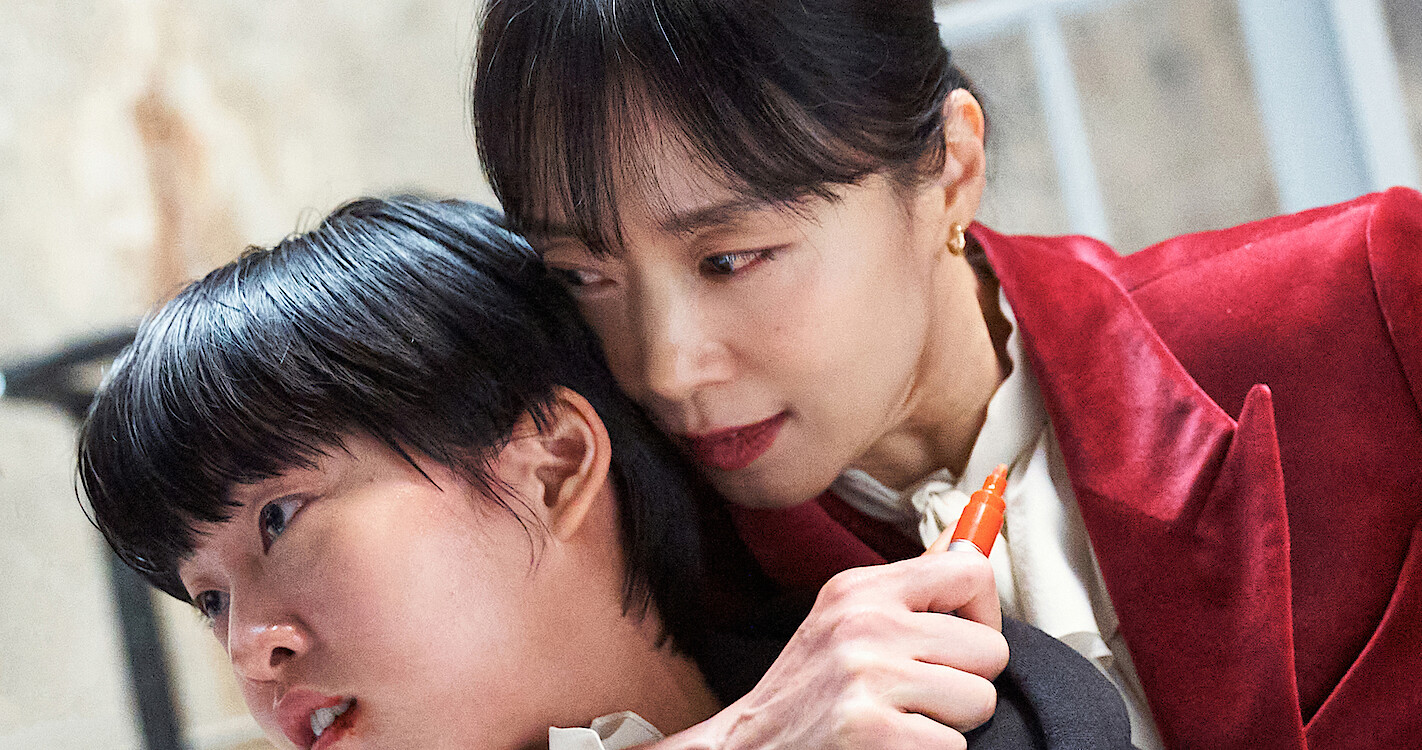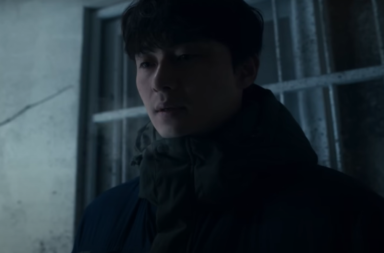
Less than a month after the conclusion of the drama Crash Course in Romance, Jeon Do-yeon is back playing another single mom in the Netflix film Kill Boksoon. The film, which had its premiere at the Berlin Film Festival earlier this year, is written and directed by Byun Sung-hyun and is about contract killer Gil Bok-soon (Jeon Do-yeon) as she balances her job and parenthood.
With a runtime of just over two hours, the film switches between measured, tense dialogue and long action scenes while providing a rich account of the fictional Korean contract killing industry. While women, including Bok-soon’s teenage daughter Gil Jae-young (Kim Si-a) are at the forefront of the movie, they are more often than not pitted against each other, and the film seems to suggest that solidarity between women eventually leads to their downfall. Kill Boksoon is a polished action movie that sacrifices complex character arcs, save for its namesake’s, in favour of the plentiful action sequences.
The film has drawn some comparisons to John Wick, no doubt in part to the world of contract killing that Kill Boksoon introduces us to. Between flashbacks and present-day dialogue, the Korean contract killing industry is presented as an organized, efficient industry that has strict rules to follow. The few rules that exist were set by Bok-soon’s boss Cha Min-kyu (Sol Kyung-gu), who is also the head of M.K. Ent., the top company in the industry. The name of the company is an eerily similar format to anybody who is somewhat familiar with the world of K-pop, and the similarities do not end there. M.K. Ent. has trainees who get monthly evaluations, and they eventually make their debuts as killers for the companies that they are signed to. Even the jargon used to discuss jobs mirror the entertainment industry. Jobs are called shows, and each one comes with a contract and a set of props that is used to stage the murder so that blame can be carefully shifted elsewhere.
Such systematic processes suggest that the industry is a well-oiled machine in Korea. These parallels with the entertainment company and real life means that there are companies that are more established than others — such as M.K. Ent. — and being signed to such companies means good jobs, pay, and reputation. The company has their own building, employees wear suits, and everybody else envies them. Indeed, power comes with privilege; Min-kyu gets away with breaking the industry rules that he set himself, and killers from other companies turn on friends to have a shot at being signed to his company.
Ranking first in the pecking order is not achieved by meritocracy, though it is made very clear that Bok-soon excels at her job. Neither Bok-soon nor M.K. Ent., through Min-kyu, earned their reputations by playing fair and nice, and their actions suggest that there is indeed no honour among thieves, or killers. Given their jobs, it comes as no surprise that neither hesitate to exploit their opponent’s weaknesses. In the opening fight sequence, Bok-soon ends an agreed-upon hand-to-hand combat fight with a gun. In the final showdown between Min-kyu and Bok-soon, he sends Jae-young, who is ignorant of her mom’s job, an iPad to livestream their fight.

Bok-soon grapples with the consequences of her job through her relationship with Jae-young. Aside from the ethical questions about killing people, which none of the characters really seem to have an issue with, Bok-soon is stuck asking for honesty from Jae-young though she cannot reciprocate. Indeed, Jae-young is Bok-soon’s puzzle that she just cannot figure out.
Note: The next two paragraphs contains plot spoilers.
When Jae-young confesses to Bok-soon that she likes girls, one of Bok-soon’s initial reactions is to be upset that she did not know this fact about her daughter. The work of maintaining a relationship with Jae-young, unlike Bok-soon’s jobs, does not come with clear instructions on what to do. Bok-soon puzzles over Jae-young just as much as her job. Throughout the film, the audience gets a glimpse into the inner workings of her brain as she plays out potential scenarios for any confrontation, particularly physical fights. The same tactic is used as Bok-soon debates how to approach her daughter about the cigarettes she found in her clothes. Ultimately, Bok-soon is left to deal with how her professional and personal lives continuously bleed into each other. By the end of the film, mother and daughter have reconciled, though questions remain about how much they truly know about each other. The precarity of their situation seems to suggest, however, that it is best to accept that secrets can actually serve relationships well, and that sometimes we have to seize the small victories that you can get.
Unlike Bok-soon and Jae-young, the two other notable women featured in the movie lack the depth of Bok-soon’s arc, and their relationships with Bok-soon imply the view that women can only exist in competition with each other. Cha Min-hee (Esom), is Min-kyu’s younger sister and a director of M.K. Ent. She is set on exterminating Bok-soon, for no other reason than that Min-kyu has a soft spot for Bok-soon. Though Min-hee has the potential to be a more complex character, she is ultimately reduced to her desire to be her brother’s favourite, ultimately leading her to her demise at Bok-soon’s hands. Min-hee and Bok-soon’s relationship as rivals had potential for more nuance as two powerful women in a seemingly male-dominated industry, but ultimately it becomes a battle for who can win Min-kyu’s favour.

At the opposite end of the spectrum is Lee Young-ji (Lee Yeon), a young trainee at M.K. Ent. that Min-hee deems to be Bok-soon’s more talented successor. Min-hee says so to Bok-soon, which provokes Bok-soon into a practice duel with Young-ji and pitting them against each other. When Young-ji later comes to Bok-soon’s defense in a real-life scenario, Young-ji is punished for her solidarity through death. Though loyalty seems to be worth nothing in the industry anyway, the fate of Young-ji suggests that teamwork and friendship between women can be detrimental to those involved. Except for familial relationships, the film’s representation of female relationships, whether that be as rivals or as allies, discourages these relationships by suggesting that women cannot coexist. Min-hee and Young-ji have to die so that Bok-soon can continue her career and live her life.
Kill Boksoon packs a punch visually, especially in the extended action scenes, but does not deliver as solidly in the development of its characters. Though its extensive world-building sets the movie up nicely for potential sequels, that does not seem to be in the cards, at least for now. In the meantime, however, those in the mood for an action movie can check out Kill Boksoon for a dose of stylish and murderous fun.
(Variety, Korea Times, YouTube. Images via Netflix.)



